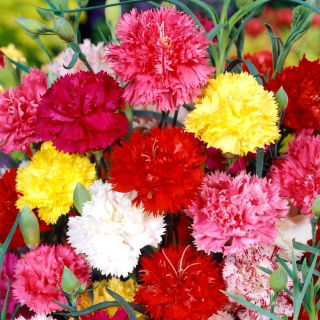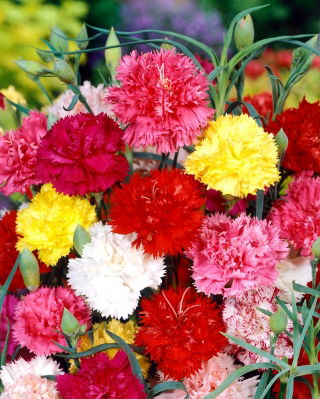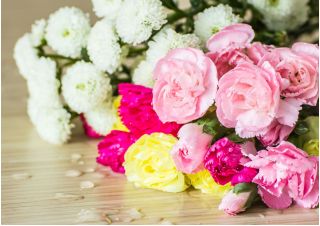- US Dollars ($)
- Euro (€)
- GB Pound (£)
- Chinese Yuan (元)
- Swedish krona (kr)
- Russian ruble (₽)
- Hong Kong dollar (HK$)
- Norwegian krone (kr)
- Indian rupee (₹)
- New Taiwan dollar (NT$)
- Danish krone (kr)
- Hungarian forint (Ft)
- Saudi riyal (SR)
- Bulgarian lev (лв)
- Czech koruna (Kč)
- Israeli shekel (₪)
- Indonesian rupiah (Rp)
- Japanese yen (¥)
- Korean won (₩)
- Malaysian ringgit (RM)
- Romanian leu (leu)
- Swiss franc (Fr.)
- Serbian dinar (din)
- Vietnamese đồng (₫)
- Ukrainian hryvnia (₴)
- Turkish lira (₺)
- Thai baht (฿)
- CAD Dollars ($)
- English
- German - Deutsch
- French - Français
- Spanish - Español
- Italian - Italiano
- Swedish - Svenska
- Russian - Русский
- Norwegian - Norsk
- Danish - Dansk
- Nederlands
- Estonian - Eesti keel
- Finnish - Suomalainen
- Hungarian - Magyar
- Latvian - Latviešu valoda
- Lithuanian - Lietuvių
- Portuguese - Português
- Chinese - 中文
- العربية - Arab-c
- Bulgarian - български
- Czech - Čeština
- Greek - Ελληνικά
- پارسی - Persian
- עברית - Abrit
- Croatian - Hrvatski
- Indonesian - Bahasa Indonesia
- Japan - 日本語
- Korean - 한국어
- Malay - Melayu
- Romanian - Română
- Slovak - Slovák
- Slovenian - Slovenščina
- Serbian - Српски
- Thai - ไทย
- Turkish - Türkçe
- Ukrainian - Українська
- Vietnamese - Tiếng Việt
- Hindi - हिंदी
- Categories
-
Seeds
-
Vegetable Seeds
-
Flower Seeds
-
- Ageratum, Flossflower seeds
- Alyssum seeds
- Amaranth Seeds
- Aquilegia, Columbine seeds
- Aster seeds
- Aubrieta Seeds
- Begonia seeds
- Bellis perennis, Daisy seeds
- Californian Poppy Seeds
- Campanula, Bellflower seeds
- Celosia, Cocksbomb seeds
- Centaurea, Cornflower seeds
- Chrysanthemum, Painted Daisy seeds
- Coleus seeds
- Convolvulus seeds
- Coreopsis seeds
- Cosmos seeds
-
- Datura seeds
- Dianthus, Carnation seeds
- Echinacea, Coneflower seeds
- Flower seed mixtures
- Forget me not seeds
- Foxglove seeds
- Gaillardia Seeds
- Gazania seeds
- Geranium, Pelargonium seeds
- Godetia seeds
- Gourd, Ornamental squash seeds
- Gypsophila, Baby's Breath seeds
- Hollyhock seeds
- Impatiens seeds
- Ipomoea, Morning glory seeds
- Calabash, Bottle Gourd seeds
- Larkspur, Delphinium seeds
-
- Limonium, Statice seeds
- Lobelia seeds
- Lupin, Lupine seeds
- Lychnis, Catchfly seeds
- Mallow Seeds
- Marigold, Tagetes seeds
- Milkweed Seeds
- Nasturtium seeds
- Nemesia seeds
- Nepeta, catmint seeds
- Nicotiana, Ornamental Tobacco seeds
- Nigella, Love in a mist seeds
- Pansy seeds
- Petunia and Surfinia seeds
- Phlox seeds
- Poppy seeds
- Primula, Primrose seeds
-
- Red Valerian, Centranthus Seeds
- Ricinus, Castor bean seeds
- Runner bean seeds
- Safflower seeds
- Salvia, Ornamental sage seeds
- Snapdragon Seeds
- Stock seeds
- Strawflower, Golden everlasting seeds
- Sunflower seeds
- Sweet pea seeds
- Tunbergia, Black-eyed Susan Vine seeds
- Verbascum, Mullein seeds
- Verbena seeds
- Veronica, Speedwell seeds
- Viola, Violet seeds
- Zinnia seeds
-
- Herb Seeds
- Sprouting Seeds
-
Flower Bulbs
-
Garden Equipment
-
At home
- Around home
-
Fertilizers
-
- All-purpose fertilizers
- Autumn and winter fertilizers
- Blueberry fertilizers
- Boxwood fertilizers
- Bulb plants' fertilizers
- Grass and lawn fertilizers
- Citrus plant fertilizers
- Compost
- Conifer fertilizers
- Dolomite and lime fertilizers
- Dry powder fertilizers
- Fertilizers for balcony and terrace plants
- Fertilizers for moss-infected lawns
- Fertilizers in pump sprayers
-
- Fertilizers in watering cans
- Fertilizers sticks
- Fertilizers with leaf shine
- Flowering plant fertilizers
- Fruit fertilizers
- Fruit tree fertilizers
- Garden plant fertilizers
- Gel fertilizers
- Geranium fertilizers
- Green plant fertilizers
- Herb fertilizers
- Home plant fertilizers
- Hydrangea fertilizers
- Lavender fertilizers
-
The garden Carnation, also known as Dianthus caryophyllus, is a perennial plant that will undoubtedly capture the attention of any flower enthusiast. This offered mix is a wealth of colours that will illuminate any garden. The garden Carnation reaches a height of 30 to 60 cm and is characterised by its long and abundant flowering from June to September. Its large, full or semi-full blooms come in many colours, making it an ideal choice for perennial borders, container cultivation, and as cut flowers.
Sowing
The garden Carnation is best sown in well-sunlit areas, which encourages intense blooming. It's advisable to carefully prepare the soil, ensuring it is well-drained to provide optimal conditions for seed germination.
Sowing Depth
Garden Carnation seeds should be sown at a depth of about 0.5 cm. This depth provides them with the right amount of light and moisture, which is crucial for successful germination.
Direct Sowing Period
When to sow garden Carnation seeds directly into the ground? It's best to sow the seeds in May, when the soil is sufficiently warm to support the rapid growth of young plants.
Sowing Period Under Cover
When to sow garden Carnation seeds under cover? The best time is in April. Sowing under cover allows for an earlier start, accelerating growth and ensuring a longer flowering period.
Planting Time
The best time to plant garden Carnations is in August. Well-rooted young plants will better withstand the winter and begin flowering sooner in the next season.
Plant Spacing
Garden Carnations should be planted with a spacing of 25x30 cm. This distance between plants ensures they have enough space for proper development and effective flowering.
Companion Planting
Garden Carnations harmoniously complement other perennials, such as lavender or sage. Plants with similar soil and light requirements are also a good choice.
Site Conditions
The garden Carnation prefers sunny locations, which promote its intense flowering. The soil should be fertile, well-drained, and slightly moist. It's advisable to avoid overly damp areas that might lead to root rot. Regular fertilisation is also beneficial to provide the plant with all necessary nutrients.
Growing Tips
The garden Carnation requires regular watering, especially during dry spells. It's also important to remove spent flowers, which encourages the plant to produce new buds. Protection against fungal diseases is also recommended, especially in unfavourable conditions.
Plant Height
The garden Carnation reaches a height of 30 to 60 cm, making it an ideal choice for both borders and container cultivation. Its proportional structure allows it to blend well with other ornamental plants.
Flowering Period
The garden Carnation blooms from June to September. Its flowers captivate with a diversity of colours and remain long-lasting on the plant, making it a popular choice for gardens that aim to dazzle with colours throughout the summer.
Usage
The garden Carnation is an excellent choice for perennial borders and container cultivation. Its beautiful flowers are also well-suited for cut arrangements, retaining freshness for a long time in vases. It combines wonderfully with other plants, creating colourful and striking garden displays.
Resistance to Diseases
The garden Carnation is characterised by good resistance to most diseases, yet it's worth monitoring the plants and applying appropriate plant protection measures if needed. Regularly removing spent flowers and providing suitable growing conditions significantly reduces the risk of disease.
Why Buy from Garden Seeds Market
The Garden Seeds Market offers top-quality seeds that have undergone meticulous laboratory testing, ensuring high quality and germination efficacy. With a swift ordering process and secure delivery, the seeds arrive on time, ready for cultivation. Positive customer reviews confirm the reliability and professionalism of the service, and numerous promotions make shopping even more appealing.
The package contains 0.5 g of seeds. The packaging includes information about cultivation rules and the sowing expiry date.
New


My account
Store
Customer information
Information

© -2025 Gardenseedsmarket.




_r.jpg)
_r.jpg)
_r.jpg)
_r.jpg)



_r.jpg)
_r.jpg)
_r.jpg)
_r.jpg)